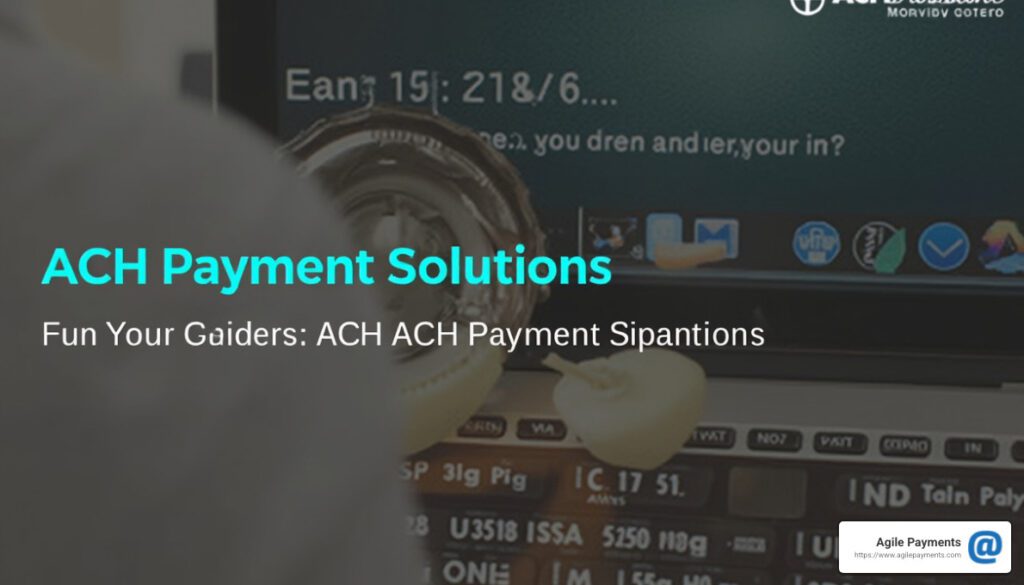Marketplace Payment Processing: Top 5 Essential Solutions
Marketplace Payment Processing is crucial for the smooth operation of online marketplaces. It involves handling payments securely and efficiently to connect consumers with sellers. Here are the key components:
- Payment Processing: Facilitates transactions between buyers and sellers.
- Compliance: Ensures adherence to regulations, protecting all parties involved.
- Revenue Generation: Enables marketplaces to earn commissions from sales.
Online marketplaces rely heavily on efficient payment processing. Unlike regular ecommerce sites, marketplaces manage transactions between multiple sellers and buyers, often involving complex systems like split payments and recurring payments. This complexity necessitates robust security measures and strict compliance with local and international regulations to guard against fraud.
My name is Gene Krause, and with over 25 years in delivering payment solutions across North America, I focus on practical solutions in Marketplace Payment Processing. My approach integrates compliance, technology, and innovation to meet modern online business demands.

Understanding Marketplace Payment Processing
Marketplace Payment Processing is the backbone of any successful online marketplace. It ensures that transactions between buyers and sellers are smooth, secure, and efficient. Here’s a closer look at the key components:
Marketplace Payment Solutions
At its core, a marketplace is a platform that connects multiple sellers with buyers. This connection requires a robust payment system to handle numerous transactions simultaneously. The key is to ensure that payments are processed quickly and securely, enhancing the user experience and building trust.
A well-optimized payment process can make a significant difference. For example, a simple and straightforward checkout process can lead to higher customer satisfaction and increased repeat purchases. Moreover, having a payment system that supports multiple currencies and regional payment methods can help marketplaces expand their global reach.
Commission Structures
Marketplaces often generate revenue through commission-based models. This means they take a percentage of each transaction as a fee for facilitating the sale. There are several ways to structure these commissions:
- Fixed Commission: A set fee per transaction, ideal for low-value sales.
- Variable Commission: A percentage of the sale price, which can vary based on factors like product category or seller performance.
- Compound Commission: A combination of fixed and variable fees, offering consistent income and additional earnings from high-value transactions.
Choosing the right commission structure is essential for balancing revenue generation with seller satisfaction.
Split Payments
Split payments are a unique feature of marketplace payment systems. They allow the marketplace to automatically divide a single payment among multiple sellers after deducting the marketplace’s commission. This is particularly useful when buyers purchase products from different vendors in one transaction.
Here’s how split payments typically work:
- Buyer makes a purchase.
- Marketplace calculates the distribution of funds, including commissions.
- Payment is processed, and fees are deducted.
- Funds are allocated to sellers involved in the transaction.

Split payments streamline the transaction process, ensuring that funds are distributed accurately and efficiently, which is crucial for maintaining trust and transparency among sellers and buyers.
In summary, understanding the intricacies of Marketplace Payment Processing is vital for creating a thriving online marketplace. By selecting the right payment methods, commission structures, and utilizing split payments, marketplaces can improve user satisfaction, increase revenue, and expand their reach.
Next, we’ll explore the key payment methods that marketplaces can use to optimize their payment processing systems.
Key Payment Methods for Marketplaces
Choosing the right payment methods is crucial for any online marketplace. These methods not only facilitate smooth transactions but also cater to diverse customer preferences. Let’s explore the most popular payment methods used in marketplaces today: credit cards, digital wallets, and local payment methods.
Credit Cards
Credit cards are the backbone of online transactions. They offer convenience and security, making them a preferred choice for many buyers. Most marketplaces integrate with payment gateways to process these transactions securely.
Why are credit cards popular?
- Widespread use: Almost everyone with a bank account has a credit card, making it an accessible option.
- Security: Credit cards come with fraud protection features that safeguard both buyers and sellers.
- Instant processing: Transactions are processed quickly, ensuring a smooth buying experience.
However, remember that credit card transactions often come with fees that can affect the marketplace’s bottom line.
Digital Wallets
Digital wallets like Apple Pay, Google Pay, and PayPal are gaining popularity due to their convenience and improved security features. They allow users to store their payment information securely and make purchases with just a few clicks.
Benefits of digital wallets:
- Ease of use: Users can complete transactions without entering card details every time, speeding up the checkout process.
- Improved security: Digital wallets often use biometric authentication, such as fingerprint or facial recognition, to authorize payments.
- Cross-platform compatibility: They can be used across various devices and platforms, making them versatile.
Digital wallets are especially appealing to younger consumers who value speed and convenience in their online shopping experiences.
Local Payment Methods
To cater to a global audience, marketplaces must offer local payment methods. These are payment options that are popular in specific regions, such as bank transfers, cash on delivery, or prepaid cards.
Why consider local payment methods?
- Market penetration: Offering local payment options can help marketplaces tap into new regions and demographics.
- Customer trust: Consumers are more likely to purchase if they see familiar and trusted payment methods.
- Reduced barriers: Local methods can eliminate currency conversion issues and other transactional barriers.
For example, iDEAL is a popular option in the Netherlands, while Konbini is widely used in Japan. Integrating these methods can significantly improve a marketplace’s appeal to international buyers.
Incorporating these payment methods into a marketplace’s payment processing system can boost user satisfaction and expand its global reach. By offering a mix of credit cards, digital wallets, and local payment options, marketplaces can cater to a diverse audience and streamline their transaction processes.
Next, we’ll dig into the top Marketplace Payment Processing Solutions that can help streamline these payment methods and improve marketplace operations.
Top Marketplace Payment Processing Solutions
When it comes to Marketplace Payment Processing, choosing the right solution is crucial. It can make or break your marketplace’s efficiency and user experience. Let’s explore some of the top solutions you can consider.
Agile Payments Solutions
Agile Payments offers a comprehensive suite of solutions custom for marketplaces. Their platform supports seamless integration, ensuring that your marketplace can handle transactions without a hitch. Agile Payments focuses on security, scalability, and compliance, which are vital for any marketplace.
Why choose Agile Payments?
- Custom Integrations: Agile Payments allows you to tailor payment solutions to fit your specific marketplace needs. This flexibility ensures that you can offer the best experience for your users.
- Secure Payment Gateways: They provide robust gateways that protect sensitive data and reduce fraud risk. This improves trust and security for both buyers and sellers.
Custom Payment Integrations
Custom payment integrations are essential for marketplaces with unique requirements. These integrations allow you to design a payment process that aligns perfectly with your business model.
Benefits of custom integrations:
- Custom Solutions: You can create a payment workflow that matches your marketplace’s specifics, such as split payments or commission structures.
- Improved User Experience: By customizing the payment process, you can offer a smoother, more intuitive checkout experience for your users.
- Improved Flexibility: Custom integrations enable you to adapt quickly to market changes or new regulatory requirements.
Secure Payment Gateways
A secure payment gateway is the backbone of any marketplace transaction. It ensures that payments are processed safely and efficiently, protecting both your marketplace and its users.
Features to look for in a secure gateway:
- Fraud Prevention: Advanced tools that detect and prevent fraudulent transactions are essential. This reduces the risk of chargebacks and protects your marketplace’s reputation.
- Multi-Currency Support: If your marketplace operates globally, a gateway that supports multiple currencies and local payment methods can improve your reach.
- Compliance with Regulations: Ensure that the gateway complies with relevant financial regulations to avoid legal issues and fines.
Incorporating these solutions into your marketplace can streamline operations, improve security, and improve user satisfaction. By leveraging Agile Payments Solutions, custom integrations, and secure payment gateways, you can build a robust Marketplace Payment Processing system that supports your business’s growth and success.
Next, we’ll discuss the Benefits of Effective Marketplace Payment Processing, including revenue sharing, security, scalability, and compliance.
Benefits of Effective Marketplace Payment Processing
Having an effective Marketplace Payment Processing system can transform your marketplace from just functional to exceptional. Let’s explore the key benefits: revenue sharing, security, scalability, and compliance.
Revenue Sharing
A well-designed payment system can facilitate seamless revenue sharing. In marketplaces, revenue often needs to be split among various stakeholders, like sellers, affiliates, and the platform itself.
Why is this important?
- Efficiency: Automated revenue sharing reduces manual errors and saves time.
- Transparency: Clear and accurate revenue distribution builds trust with your partners.
- Flexibility: You can easily adjust commissions or fees as your business model evolves.
Security
Security is paramount in payment processing. Breaches can cause significant harm to your marketplace’s reputation and lead to financial losses.
Key security features include:
- Data Encryption: Protects sensitive information during transactions.
- Fraud Detection: Advanced algorithms that identify and block fraudulent activities.
- Secure Authentication: Tools like two-factor authentication add an extra layer of security.

Scalability
As your marketplace grows, your payment processing system must keep pace. Scalability ensures that your platform can handle increased transaction volumes without hiccups.
Scalability advantages:
- Performance: Maintain fast and reliable payments even during peak times.
- Flexibility: Easily add new features or expand to new markets without overhauling your system.
- Cost-Effectiveness: Efficient scaling reduces operational costs as your marketplace grows.
Compliance
Staying compliant with financial regulations is crucial to avoid legal issues and penalties. Effective payment processing systems help marketplaces adhere to these standards.
Compliance benefits:
- Risk Mitigation: Automated compliance checks reduce the risk of legal infractions.
- Global Reach: Compliance with international regulations enables expansion into new regions.
- Reputation: Demonstrating compliance builds trust with users and partners.
By focusing on these benefits, you can build a robust Marketplace Payment Processing system that not only supports your marketplace’s current needs but also positions it for future growth and success.
Next, we’ll tackle some Frequently Asked Questions about Marketplace Payment Processing, including how long it takes for payments to process and the safest ways to handle transactions.
Frequently Asked Questions about Marketplace Payment Processing
How long does it take for payment to process?
Payment processing times can vary depending on several factors. Typically, payout schedules are set by the marketplace and can range from real-time payouts to scheduled intervals like daily or biweekly.
For example, some marketplaces, like those using ACH transfers, may require a few days due to bank processing times. This is because the funds need to be cleared and settled between financial institutions.
Delivery confirmation plays a crucial role here. Once a seller confirms the delivery of a product or service, the clock starts ticking for the payout process. Make sure your marketplace clearly communicates these timelines to manage expectations.
What is the safest way to take payment?
Security in payment processing is non-negotiable. The safest way to handle payments involves using secure payment methods and implementing robust fraud prevention measures.
Here are some key practices:
- Data Encryption: Use strong encryption protocols to protect payment data during transactions.
- Digital Wallets: Options like Apple Pay and PayPal offer additional layers of security, often incorporating biometric authentication.
- Two-Factor Authentication: This adds an extra step for verifying users, reducing the risk of unauthorized access.
By prioritizing these features, your marketplace can offer a secure transaction environment that protects both buyers and sellers.
Why does my payment say processing?
Seeing a “processing” status can be frustrating, but it’s a common part of payment workflows. This status often indicates that the payment is in the pending phase, where it is being verified or waiting for bank approval.
Several factors can contribute to this status:
- Bank Processing Times: Different banks have varying processing speeds, which can affect how quickly a payment moves from pending to completed.
- Verification Checks: Payments might be undergoing additional security checks, especially if they are flagged for potential fraud.
Understanding these factors can help users remain patient and informed about their transactions. Encourage your marketplace to provide clear communication and updates on payment statuses to improve user experience.
Next, we’ll explore how Agile Payments can support your marketplace with integration tools and developer-friendly APIs.
Conclusion
In today’s digital economy, marketplace payment processing is more than just a transaction—it’s the backbone of your business operations. And that’s where Agile Payments steps in. We provide robust integration tools and developer-friendly APIs that simplify complex payment processes, making it easier for your marketplace to thrive.
Agile Payments specializes in offering solutions that are not only secure but also scalable, catering to the unique needs of both U.S. and Canadian markets. Our APIs are designed to be agile, helping developers integrate seamlessly with ACH, EFT, and credit card processing systems. This means your marketplace can handle transactions efficiently, mitigating risks while ensuring compliance with industry standards.
Our focus is on creating a smooth experience for developers. By providing comprehensive documentation and support, we empower your team to implement and manage payment solutions with ease. This developer-centric approach ensures that your marketplace can adapt quickly to changing demands and scale effortlessly as your business grows.
In conclusion, choosing the right payment processing partner is crucial. With Agile Payments, you’re not just getting a service provider; you’re gaining a partner dedicated to helping your marketplace succeed. Whether you’re looking to streamline processes, improve security, or expand your market reach, our tools and expertise are here to support your journey.





